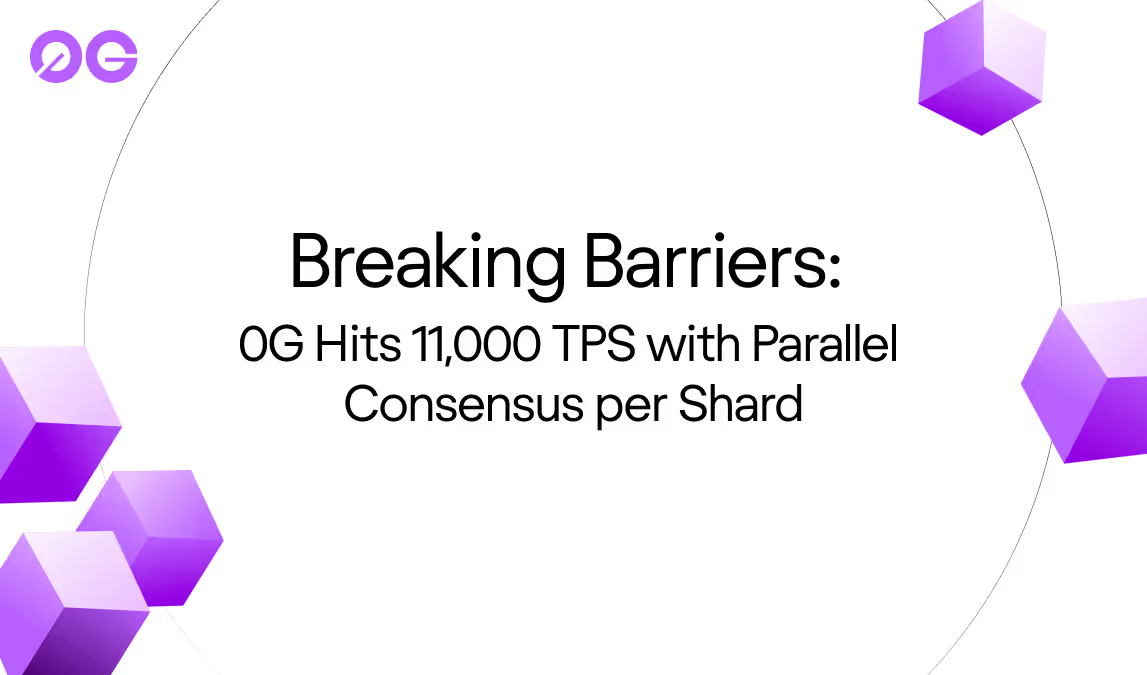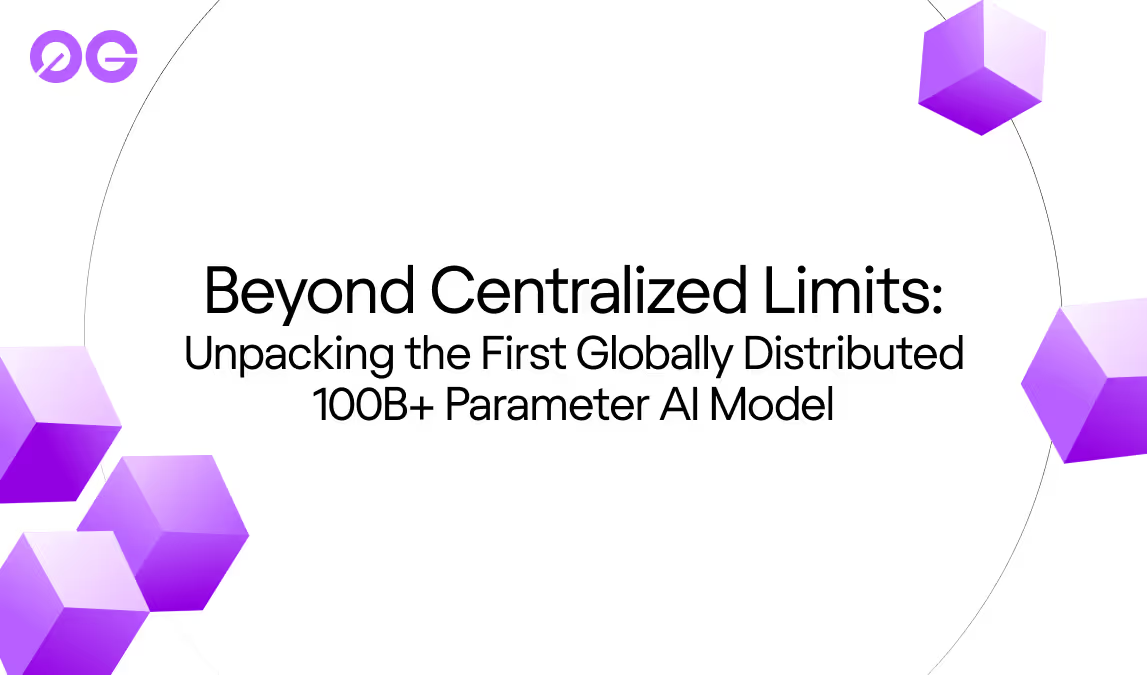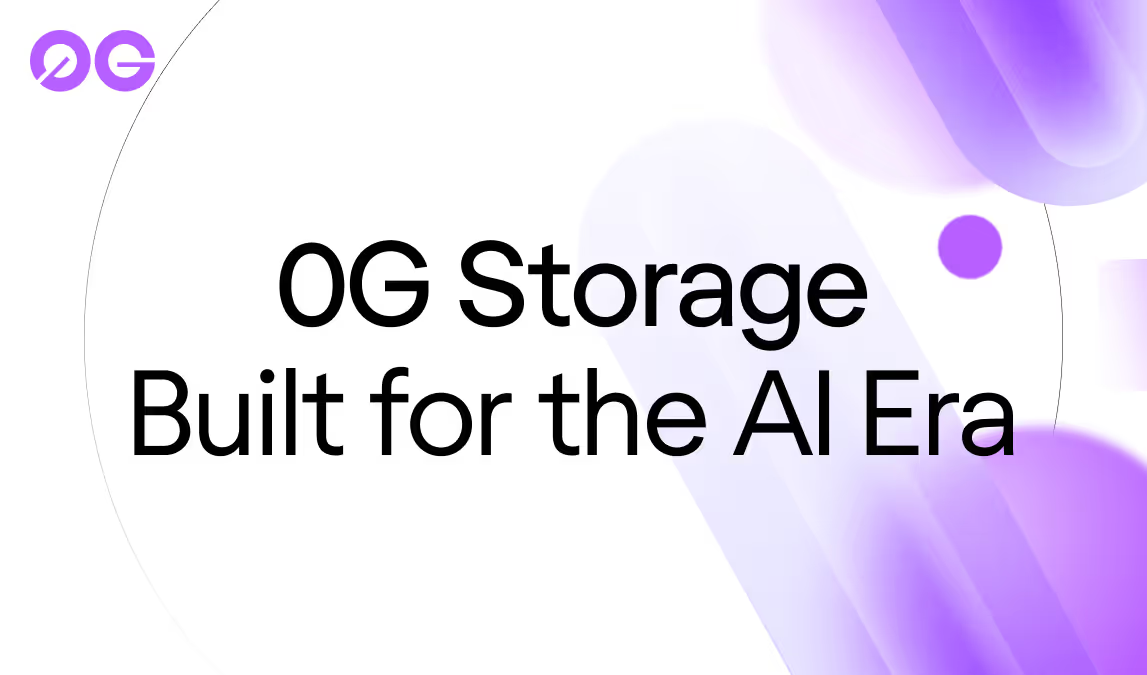

Overview of AI Agents
AI Agents are a killer Crypto AI use case that not enough people are talking about, and an area that we expect to grow exponentially in the coming years.
They refer to software designed to autonomously execute on-chain tasks, leveraging advanced AI models and tools to analyze data. As Web3 is becoming increasingly more complex, humans cannot manage the intricate relationships formed between all possible on-chain users, smart contracts, and bots. For example, it’s already impossible to manually optimize yield across various projects and networks, let alone to do the advanced tasks that AI Agents are capable of.
0G is proud to provide the infrastructure that brings AI Agents to life, with partnerships already formed with AI Agent ecosystem players like Theoriq and Talus.
In this article we’ll cover:
- What Are AI Agents?: An introduction to AI Agents, exploring their definition, capabilities, and how they function autonomously within complex environments.
- AI Agents in Web3: How AI Agents are revolutionizing the Web3 landscape by managing intricate on-chain tasks and optimizing decentralized systems.
- 0G’s Role in Supporting AI Agents: A look at how 0G provides the necessary infrastructure, including data storage and verification, to empower AI Agents in decentralized ecosystems.
What are AI Agents?
AI Agents refer to highly complex computer programs designed to function autonomously, handling complex tasks related to decision-making, planning, and task execution. Typically, they use Large Language Models (LLMs) on the backend, with customization and detailed workflows to make them appropriate for any use case of interest.
Prior to advancements in LLMs and on-chain infrastructure, the concept of AI Agents revolved around simple rule-based systems. Today’s AI Agents have transformed into sophisticated systems capable of learning, reasoning, and making decisions independently.

Some existing use cases include:
- DAOs: AI-driven governance or treasury management.
- DeFi: Liquidity optimization, sentiment analysis, intent-solvers, etc.
- Content: Automated on-chain content curation and creation.
- Entertainment and Gaming: Personalized gaming experiences, A.I. non-playable characters, etc.
- Assistants: Chatbots, personal assistants, content curators, recommendation engines, etc.
- AI and Data Ecosystem: New crowd-funding models, monetization of specialized models, and collaboration between model developers and data providers.
Within Web3, the proliferation of AI Agents is already rapidly increasing due to their ability to navigate the complexities of decentralized systems. As this technology evolves, leading innovators are exploring how these autonomous systems can significantly advance decentralized ecosystems.
For example, Dain Protocol has a platform for building and monetizing DeFi-focused Agents, BrianKnows is building Agents that convert text prompts into transactions and data retrievals, and Devin can write code and execute GitHub pull requests.
Meanwhile, 0G’s partners Theoriq and Talus are building out platforms for the decentralization creation and management of AI agents, which we’ll cover below.
How Do AI Agents Work?
AI Agents typically are built on top of Large Language Models (LLMs) such as OpenAI’s GPT-4, Meta’s LLaMa 2, or Google’s PaLM 2. While some build their own proprietary algorithms, this can be challenging due to the immense resources required to effectively compete with big players. An interesting use case is Assisterr (also a 0G partner), who are using Small Language Models (SLMs) instead, referring to smaller yet more specialized models that can be especially important for business use cases.
AI Agents operate by incorporating the following elements:
- Task-Specific Modules: Tailored to the agent's specific purpose, such as interacting with external databases, integrating additional models, or building complex data pipelines to handle specialized tasks.
- Memory: Allowing agents to retain context or information from past interactions and improve decision-making over time.
- Action Modules: These modules interpret the outputs generated by the LLM and convert them into actions, such as making API calls, controlling devices, or producing specific outputs like code or structured data.
- Environment Interface: AI Agents interact with their surroundings using APIs, sensors, or user interfaces. This might involve retrieving information from the web, controlling smart devices, or responding to user commands.
Agents in action with 0G
Two projects we're particularly excited about are already partners of ours:
- Theoriq: A decentralized protocol designed to govern and facilitate the creation, interaction, and optimization of “Agent Collectives”. These refer to a collection of AI agents collaborating to solve complex tasks more effectively than individual agents.
- Talus: An IBC-compatible Layer 1 and decentralized Smart Agent hub that allows users to access, provide, and collaboratively build AI Agents and AI models using the Sui Move language for horizontal scalability.
Given the vast amount of datasets, users, and blockchain ecosystems both projects must support, 0G’s data storage system and DA capabilities play a key role in helping them scale.
Theoriq will have Agent Collectives seeking to analyze on-chain DeFi data for a new decentralized finance (DeFi) project, perform advanced analytics, trade with smart contracts, and generate a report. 0G can quickly query and verify any relevant data while also providing data availability guarantees. Projects within the 0G ecosystem (including other networks and dApps) can also connect to Theoriq to use their Agent Collectives. Theorqie recently raised $6.2M to bring their vision to reality.
Meanwhile, Talus Network derives similar benefits as Agents may access AI models and datasets hosted on either 0G or an external network, at unprecedented speeds. Talus recently raised $3M to bring this to life.
A significant part of this entails users of Theoriq being able to store data using 0G Storage or leverage any data or AI Models already stored on 0G. Meanwhile,
Final Remarks on Agents
The AI Agent space is still early, in part due to the technology necessary to support it has only recently evolved.
0G is proud to be helping scale this crucial sector, through both:
- 0G Storage: Interoperable Web2/Web3 data storage for AI Agents.
- 0G DA: Fast data verification and querying for AI Agents.
It has become clear that AI Agents will not only serve as tools for both Web3 users and protocols but will also help navigate Web3’s increasingly complex landscape.
If you’re interested in how 0G can help you build out the future of Crypto AI, please reach out here.






